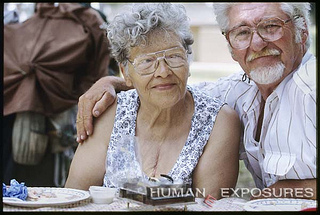A Central Florida Campaign, “Rethink Homelessness,” seeks to change public misconceptions that the homeless are just lazy people who don’t want to work.
The campaign’s centerpiece was a series of YouTube videos, including one that asked local homeless people what the rest of the population might be surprised to learn about them. They held their answers up to the camera on cardboard signs. The video got 100,000 Facebook views the first day alone.
Joshua Johnson, a main advocate for Rethink Homelessness recalls:
If I was approached, I’d hand a homeless person a business card for a local labor pool. Essentially the message was, ‘Here — I work for mine. You can work for yours.’
Once I met people on the streets and really talked to them, it changed my thinking about who they are. I came to understand that stereotypes suck.
In the most popular video, “Cardboard Stories,” set to the tune of “Royals” by Lorde, homeless people hold up signs revealing the details of their lives few would guess: They are battling lung cancer, for instance, or speak four languages. They are currently employed, are escaping domestic violence or once built robots. One, a 24-year-old whom many assume is on drugs or crazy, says: “I have Huntington’s.” Another woman’s sign reads: “I was a figure skater.”
Andrae Bailey, CEO of the homeless commission, which created the campaign, says:
We found out through our research that the homeless are people with disabilities and mental illness and mothers escaping domestic violence and veterans who panhandle because they have post-traumatic stress and they’re living on our streets after serving our country. Without understanding that, the community will never do anything to solve the problem.
A “tease and reveal” billboard campaign that began with various people holding cardboard signs reading: “I never thought this would happen to my family” or “I never thought it would be my kid.” After two weeks came the “reveal” stage: the tag line “Rethink Homelessness.”
The need for changing attitudes about homelessness in the area is genuine, since Central Florida now ranks No. 1 in the nation on the issue of long-term, chronic homelessness for regions of its size.
The campaign also has attracted attention from other communities, including Jacksonville and Atlanta.
Shannon Nazworth, executive director of the nonprofit Ability Housing of Northeast Florida, which helps the homeless and people with disabilities, says:
It’s a phenomenal campaign. Frankly, it blows you away. We’re actually in the beginning stages of discussing how we can do something like this ourselves.










